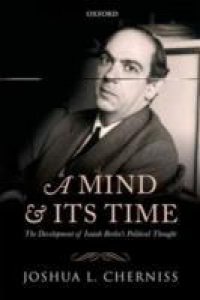A Mind and its Time offers the most detailed account to date of the genesis and development of Isaiah Berlins political thought, philosophical views, and historical understanding. Drawing on both little-known published material and archival sources, it locates Berlins evolving intellectual interests and political positions in the context of the events and trends of interwar and post-war intellectual and political life. Special emphasis is placed on theroots of Berlins later pluralism in philosophical and cultural debates of the interwar period, his concern with the relationship between ethics and political conduct, and his evolving account of liberty. Berlins distinctive liberalism is shown to have been shaped by his response to the cultural politics ofinterwar period, and the political and ethical dilemmas of the early Cold War era; and to what Berlin saw as a dangerous embrace of an elitist, technocratic, scientistic and managerial intellectual and political stance by liberals themselves. At the same time, Berlins attitude toward what he called positive liberty emerges as far more complicated and ambivalent than is often realized. Joshua L. Cherniss reveals the multiplicity of Berlins influences and interlocutors, the shifts in histhinking, and the striking consistency of his concerns and commitments. In shedding new light on Berlins thought, and offering a better understanding of his place in the development of liberal thought in the twentieth century, he makes fresh contributions both to understanding the intellectualhistory of the twentieth century, and to discussions of liberty and liberalism in political theory.

